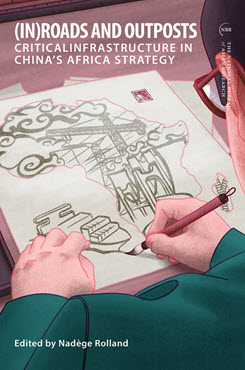Essay from NBR Special Report no. 98
Chinese Telecommunications Giants and Africa’s Emerging Digital Infrastructure
This essay finds that Chinese technology and telecommunications companies play an increasingly dominant role in the rise of Africa’s digital infrastructure, creating key strategic opportunities for China’s global tech and geopolitical ambitions.
EXECUTIVE SUMMARY
MAIN ARGUMENT
Chinese technology companies have become the main actors in the development of Africa’s digital infrastructure. Beijing’s influence has induced increasing dependence on Chinese providers in the financing, provision, and operation of critical information and communications technology (ICT) infrastructure across Africa. These factors compound to create ripple effects where the end result is a potentially powerful political agenda both regionally and globally. Further, Beijing’s influence has assisted several Chinese technology companies in dominating certain areas of Africa’s tech space, overcoming and counteracting difficulties resulting from Western governments’ actions against the companies that excluded them from lucrative markets. This raises questions about the Western approach to engaging illiberal African countries, especially in areas in which China has increased its presence, such as the creation of internet services. In the short term, the Chinese party-state may improve its international image, economic standing, and sphere of influence. Over the longer term, China’s activities could create the tools needed to achieve a global alternative to the U.S.-led technological ecosystem and the rules-based order.
POLICY IMPLICATIONS
- More investigations are needed to better understand how Chinese telecommunications companies operate in different contexts. These should assess the extent to which African countries’ dependence on Chinese providers has put them at risk of coercion and exploitation.
- To mitigate these effects, the international community should push for the creation and enforcement of transparency mechanisms for ICT companies. This should diminish reliance on single-country sanctions that may have the unintended effect of propelling the growth and dominance of Chinese companies in more fragile states.
- Democratic countries should invest in generating viable options for African states and the private sector to diversify the provision of digital infrastructure, engaging with local providers to mitigate dependence on China. While this may often not be economically convenient or viable in the short term, not doing so will leave space for Chinese telecommunications companies to fully dominate the African market.
Daria Impiombato is a Researcher at the Australian Strategic Policy Institute’s International Cyber Policy Centre.



 Into Africa: China's Emerging Strategy
Into Africa: China's Emerging Strategy